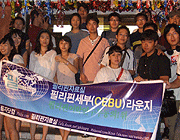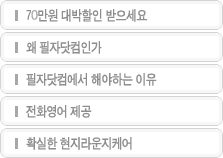Philippine Crocodile Abattoir Sells Reptile Skin to Louis Vuitton

A newly opened slaughterhouse in southern Philippines will provide crocodile skin to luxury bag maker and fashion label Louis Vuitton. The JK Mercado and Sons Agricultural Enterprises (JKMSAE) opened on Wednesday in Kapalong, Davao del Norte, the only crocodile abattoir in Mindanao.

Vicente Mercado, chairman of the board of JKMSAE, said besides Louis Vuitton, other branded bag makers would also buy the croc skin from them, although he did not name the other buyers.
j.K. Mercado initially ventured into production and distribution of Cavendish bananas in 1971. With the skilled and
motivated work force, the company later ventured into Hog farming which has grown steadily over the years with its
allied businesses such as cut flowers, crocodile farming and ostrich farming. With these developments, JK Mercado is
now aggressively participating with ever-growing initiatives to source sustainable production of Bananas & Hogs;
support the local community and protect the environment through conservation and education -
Quality crocodile skin commands a very high price and is said to be sold per centimeter.
Located in Barangay New Katipunan in Kapalong, the 10-hectare JKMSAE farm breeds over 6,000 crocodiles both
for conservation (Crocodylus mindorensis species) and trade purposes.
The crocodile slaughterhouse is considered to be the most modern and second largest in the country.
Mercado said that the JKMSAE slaughters at least 24 crocodiles a day.
The reptiles first undergo an electric stunner and the coil is cut before their brains are picked to make sure that the
crocodiles are dead.
Mercado said that while the skin is sold to luxury bag makers, the crocodile meat, on the other hand, is sold in the
local market and made into delicacies.
Mercado stressed that crocodiles are very important to eco-balance for the productivity of wetlands, hence the
farm is also into conservation efforts.
To ensure that the abattoir, which would slaughter at least 24 crocs a day, would meet global standards based on regulations of the Convention on International Trade in Endangered Species of Wild Fauna and Flora (CITES), the animals to be culled
would be hit by an electric stunner and then would cut the coil and check the croc's brain to ensure it is dead. The farm, in
turn, will sell the crocodile meat in the local market. The farm is registered with CITES and open to tourists who want to learn more about the crocodile industry in the Philippines. Mr Mercado said the farm is also into conservation of the crocs for
ecological balance. Philippine waters have a large number of the saltwater crocodile. In 2011, the world's largest crocodile,
later named Lolong, was captured in the province of Agusan del Sur.

The slaughterhouse would source the skin from the local saltwater crocodile, known as the Crocodylus porosus, which is
also bred in JKMSAE's 10-hectare farm. The company has 6,000 reptiles, consisting of the saltwater species, which they
breed for trade, and the Crocodylus mindorensis species which they raise for conservation.
To ensure that the abattoir, which would slaughter at least 24 crocs a day, would meet global standards based on regulations of the Convention on International Trade in Endangered Species of Wild Fauna and Flora (CITES), the animals to be culled
would be hit by an electric stunner and then would cut the coil and check the croc's brain to ensure it is dead.




Mercado said that the JKMSAE slaughters at least 24 crocodiles a day.
The reptiles first undergo an electric stunner and the coil is cut before their brains are picked to make sure that the
crocodiles are dead.Mercado said that while the skin is sold to luxury bag makers, the crocodile meat, on the other
hand, is sold in the local market and made into delicacies.Mercado stressed that crocodiles are very important t0
eco-balance for the productivity of wetlands, hence the farm is also into conservation efforts.

International trade in crocodile pelts is regulated by the Convention on International Trade in Endangered Species of Wild
Fauna and Flora (CITES), which serves to “regulate trade in listed species, including hybrids and captive-bred specimens,
through a system of permits and certificates.”
There are only three crocodile farms in the country that are said to be registered with CITES.
The JKMSAE crocodile farm is open to tourists and other visitors who want to learn more about the crocodile industry.
























